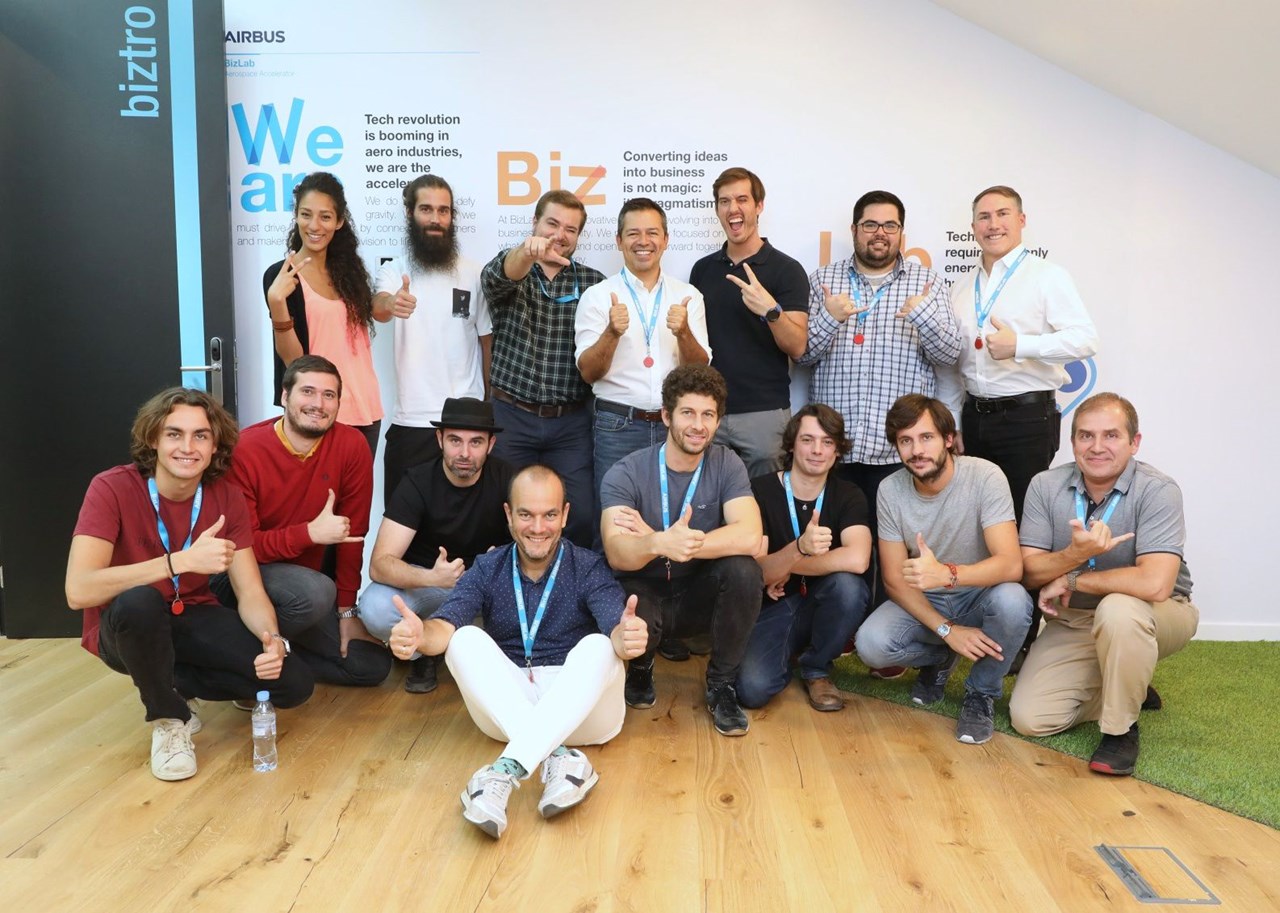Post-crisis periods are among history’s most productive eras and according to Professor Scott Galloway of New York University, we're going to see more new businesses started in the second half of 2021 than in any six month period in the last 30 or 40 years.
This anticipated era of entrepreneurship may present a unique opportunity for aviation companies to invest in startup incubation programmes in order to grow, operate more efficiently and find disruptive solutions to traditional problems.
In this article, we take a look at the benefits of incubation programmes as modern tools for innovation management in the aviation industry and the ingredients for success.
What is a startup incubation programme?
Simply put, it’s a collaborative programme designed to help new startups succeed. Incubators help entrepreneurs solve some of the problems commonly associated with running a startup by providing workspace, seed funding, mentoring and training, with the sole purpose of helping entrepreneurs grow their business.
It’s a give-and-take relationship in which:
- An established company provides money, information and know-how, as well as support from its employees and equipment.
- In return, the incubated startup provides the innovation and new business solutions the company needs for sustainable development.
Where ideas take off: incubation in the aviation industry
There are numerous examples of fertile collaboration between businesses and startups in the aviation industry. Here are just some examples:
Airbus BizLab:
Airbus BizLab supports early-stage projects through a six-month acceleration programme. Since its launch in 2015, Airbus BizLab has accelerated 72 startups and 54 internal projects, which have raised a combined €23.5 million.
It has supported many successful platforms, such as EFLIGHT, which optimises jet pilot response to flight conditions, and UUO Innovation, which has designed a kit for long-haul travel comfort needs.


Boeing HorizonX:
Boeing HorizonX was formed in 2017 and comprises three teams helping new business ventures. One of those, Disruptive Horizons, hosts internal and external accelerator and incubator programmes.
Among the startups Boeing HorizonX has supported are Robotic Skies, a services provider of aviation-grade drone maintenance, and Reaction Engines, developing a new class of hypersonic engine designed to propel both high speed aircraft and spacecraft.
Lufthansa Innovation Hub:
Lufthansa Innovation Hub was launched in 2014 and is a dedicated innovation lab initiating partnerships between the Lufthansa Group and travel tech startups.
The hub has successfully developed a number of products, including Yilu, a platform interlinking services in the travel chain to provide a seamless end-to-end passenger experience, and AirlineCheckins.com, an automated assistant that checks in travellers automatically on more than 200 airlines.

BEUMER Group’s Beam:
Beam, a spin-off of BEUMER Group, is a Berlin-based autonomous company builder that has been working with start-up teams since 2018.
It sources 100 problems per year and passes them through a criteria filter, a series of questions to be considered before pitching the idea to startups. This includes inquiries such as whether the idea is a unique opportunity that others don’t see, whether the timing is right, whether the solution to the problem is at least five times better than the status quo, and so on.
Partnering with outside founders, Beam establishes three start-ups per year. The founding team receives up to 80% equity in the startup company.
One example of a startup supported by Beam’s programme is Airsiders, a technology company providing modern interlining solutions for the air travel industry.
Read our full interview with Airsiders CEO Yavuz Karadag here.
An incubation programme: what’s in it for the company?
For the more established company, incubating startups can be the best way to develop new technology and business solutions. Startups have the disruptive power and lateral thinking ability that are often missing in established companies. And startups already come with the advanced, game-changing innovation that might be the solution to their problems. It’s a way for a company to access new ideas, skill sets and technologies and to expand its strategic vision.
BEUMER Group has this to say about its incubation programme:
"We encourage start-ups to create solutions for intralogistics problems - solutions which might disrupt our current business. Why? Because BEUMER Group once saw its position as the leading manufacturer of CD sorting equipment disrupted as CDs were almost replaced by online streaming. A change in market behaviour that had a significant effect on our business and gave an important learning; You cannot predict the future, only prepare for it."
RELATED ARTICLE:
Aviation startup CEO: Incubation puts us two steps ahead of the competition
What’s in it for the startup?
For the startup, incubation programmes are equally rewarding. By partnering with an incubator, they stand to gain:
- Networking opportunities, partnerships and access to professional resources.
- Low-cost access to expensive and sophisticated equipment and low-cost space.
- Exposure to industry leaders and mentorship.
- A structure within which to maintain a business focus.
- Critical access to funding.
- Opportunities for accelerated growth.
For Airsiders CEO Yavuz Karadag, the upside of being part of Beam’s incubation programme is clear:
“The major benefits of the incubation programme are the access to know-how from a company specialized in our industry and the warm introductions we receive to potential clients as well as partners,” he said. “Having a well-known corporate as a backer is also a significant key enabler, especially in the airport and airline industries.”
Given the many benefits that they provide to startups and businesses with a growth mindset, it’s not hard to see why incubators have grown in popularity in recent years.
Steps to making an incubator a success
Successful incubation is a win-win situation both for startups and incubators. But success does require taking some key steps. If your company is thinking about establishing its own incubation programme, here’s what you might want to consider:
- Establishing a clear purpose for the incubation programme: What’s the end goal and why does your company need an incubation programme?
- Defining the range of the incubator: How far do you want to branch out from your core business? Are you looking at core innovation, adjacent innovation or radical innovation?
- Building the incubator team: What kind of expertise will you need? Do you have the knowledge base within your company or do you need to source external expertise?
- Defining the potential additional activities of the incubator: Do you need to find new ways to expand your portfolio by investing in and partnering with startups that fit within the focus of your incubator?
- Focus on the right criteria to select your venture ideas: You should be considering criteria such as problems, solution fits, company strategy fits, market validation, the team and the business case.
- Set up a timeline and milestones for the incubator programme: Ensure you have detailed outlines illustrating the duration, process flows, milestones and deliverables of your incubator programme.
- Allocating resources wisely: Will you need additional services (such as entrepreneur or startup networks, advisory boards) or to set up any strategic partnerships?
- Motivating startups with the right incentives.
- Positioning the incubator strategically within an innovation ecosystem: Dr Johannes Stemmer, Director Digital Transformation at BEUMER Group, says of its incubator, Beam: “In Berlin we are right in the heart of the start-up scene, we can benefit from events, give presentations ourselves and arrange offline events to get people’s attention. It is the perfect platform for us for networking and elevating visibility.”
- Planning past the incubation phase: What type of investment will you be making or needing in the next phase of your venture? Are you planning on establishing any partnerships? Will you become a spin-off company?
The success of a startup incubation programme will be measured by quantifiables such as successful investments, spin-off ventures that generate revenue, commercial partnerships and very deep understanding generated by trend and market intelligence teams.
The Satair Takeaway
The long-term success of established companies in the aviation industry will depend not only on their ability to leverage their current capabilities and improve efficiency but also on taking risks and exploring unknown areas. To meet this challenge, companies are increasingly relying on incubation programmes to fuel innovation and growth.
Incubation programmes can help aviation businesses stimulate the development of new value propositions, tap into new markets and solve problems faster, more cost-effectively and at a lower risk. By supporting incubation programmes, companies can help shape the future of global aviation.
The many cases of successful incubation programmes in the industry prove the possibilities for turning new ideas into reality. In this era of global upheaval and entrepreneurship, the time has never been better for aviation incubation programmes.